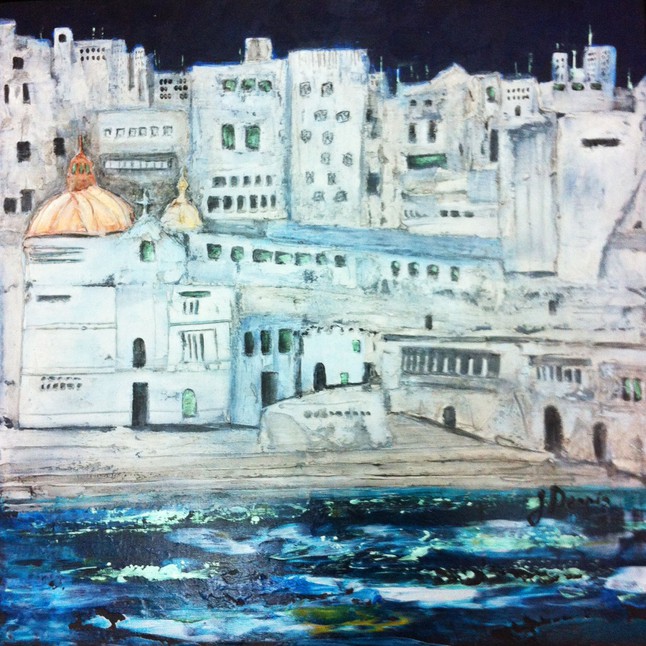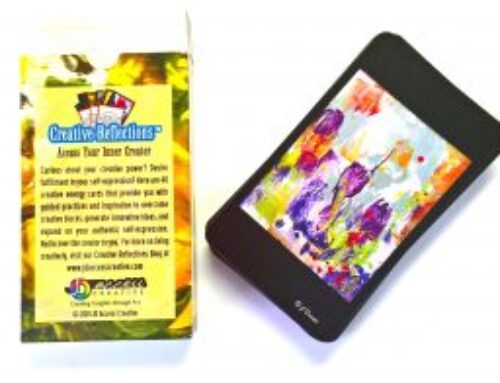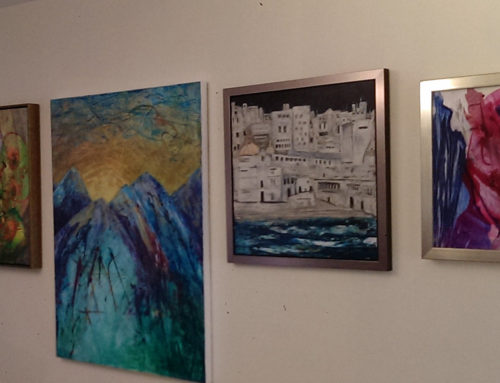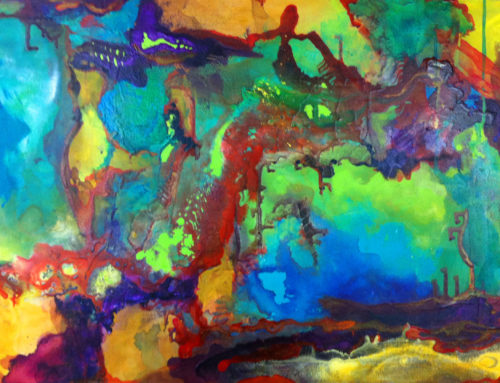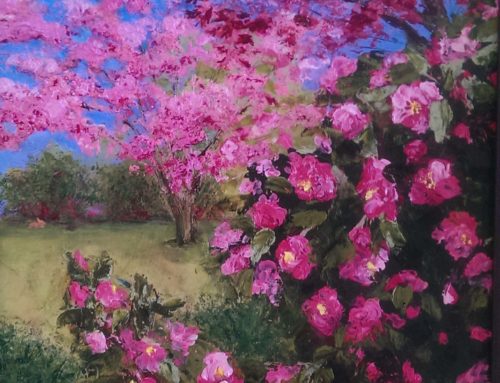In creating, the hardest part is often to begin.
When it comes to working on our creative projects we often don’t give them priority in our lives. The things that get in our way can range from being busy with work, caring for others, other priorities on the home-front such as maintenance tasks like cleaning, laundry, gardening etc. And then there are the emotional blockages, boredom, fear of failure, not knowing where to start, and the inner critiques that we tell ourselves. Some people never finish anything, because they never start. Some people start and quit before they finish. And some start and work on it forever, and are never done.
To some people the task of starting with nothing and working your way towards creating something whole, beautiful and satisfying is a difficult moment. It can be the writer beginning with the blank page, a painter with a white canvas, a raw chunk of stone, or a piano without sheet music. This is the moment where creativity begins. When we are confronted by this moment, we may find ourselves walking away to do other seemingly more important tasks, getting tired and wanting to take a nap, distracting ourselves by going shopping, eating, doing chores or a myriad of other choices. This is where we can either begin with procrastination, or choose to commit. As challenged as we may feel, fulfilling on our creative passions and filling the blank space is our opportunity to self express and create our identity.
Procrastination shows up in many forms: Pure unadulterated avoidance, just being too busy, playing too much, sleeping through it all, using ‘if only i had’ talk, being all talk no action, waiting for a sign, sacrificing your dreams, pouring your life into others and ignoring your own needs, playing it safe, and letting fear stop you.
Opening yourself to Creative Engagement
1. Be on purpose
Identify why you want to create. Why is it important in your life, and how will this contribute to the difference that you want to make in the world? Being on purpose is a huge motivator to action.
2. Create rituals that serve your creativity
A lot of habitually creative people have preparation rituals linked to the setting where they choose to start their day. This could be the lighting of a candle before doing yoga, playing a scale on a piano, clearing our art space, putting on your favourite music, pouring that perfect cup of tea, and positioning yourself in that space where you get to begin your creative day. Creating or finding your environment to express yourself, should make you want to be there.
3. Prepare to be Creative
In order to be creative you need to prepare to be creative. It involves preparing yourself, and stretching your mind as you would stretch your muscles prior to a workout.
- Spend time with your thoughts – Sit for a moment and let your thoughts roam, daydream. Pay attention to what comes up, looking for those things that inspire you, and noticing the goals that you can build on. Play with your ideas and write them out.
- Face your fears – Notice any fears that come up, and accept them from a detached point of view. Put a name to your fears, write them out, challenge them, and banish them before you begin.
4. Build new habits:
Meeting our creative goals requires established routines on a daily basis. The routine is as much a part of the process as that lightning bolt of inspiration. When we create habits that support our creativity, creating becomes second nature, and this leads to breakthroughs in our abilities, and inspirations. Although creating habits implies routine and repetition and may not sound very exciting, it takes practice and exercise to develop our skills so that we can make the most of our creative thoughts.
You want a routine that is Pavlovian – Every habit is made up of a cue, a routine, and a reward, and when we do it often enough a craving shows up. Consider what new habits would serve you best. As we reward ourselves we create a Pavlovian response to take action, and we become conditioned to act whether we feel like it or not. Identify the habits that will support you in reaching your goals, and build them into your life.
Quick Remedies for Procrastination
- Find Purpose and meaning in your inspirations
- Use Positive affirmations and visualize your best result
- Pay attention to your good ideas and act on them now
- Develop your ability to concentrate – stop multi-tasking!
- Write -anytime, anywhere, anyhow
- Set goals in digestible chunks and get started on them
- Commit to yourself and your self development as a Creator
- Be willing to suffer a bit for your creations- get out of your comfort zone
- Use what you know to get started – trust in your abilities
- Learn to say no to those shiny things that don’t fit your higher priority
- Produce when you are most awake
- Be compassionate with yourself – it’s ok to make mistakes
- Learn to create in the middle of things and in the midst of the messes
Practice Creativity
Make space and energy for creative action. For the next week, remove one thing from your ‘to-do’ list and replace it with 15-30 minutes of something creative. It could be writing in a journal, creating a new recipe without the cookbook, doing a 10 minute painting, or a silly little song/poem. Notice how it feels to take time for you and your passions. Notice what thoughts come up for you.
I would love to hear how this turns out for you, and feel free to respond to this blog entry.

This work by Joanne Dennis is licensed under a Creative Commons Attribution-NonCommercial-NoDerivs 3.0 Unported License.

